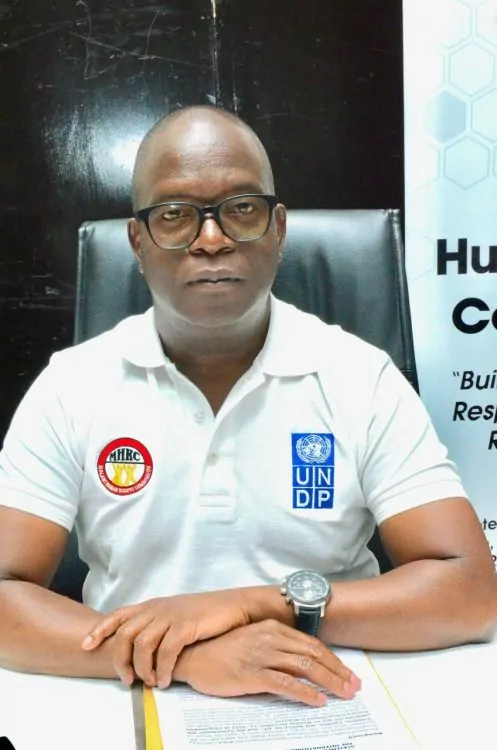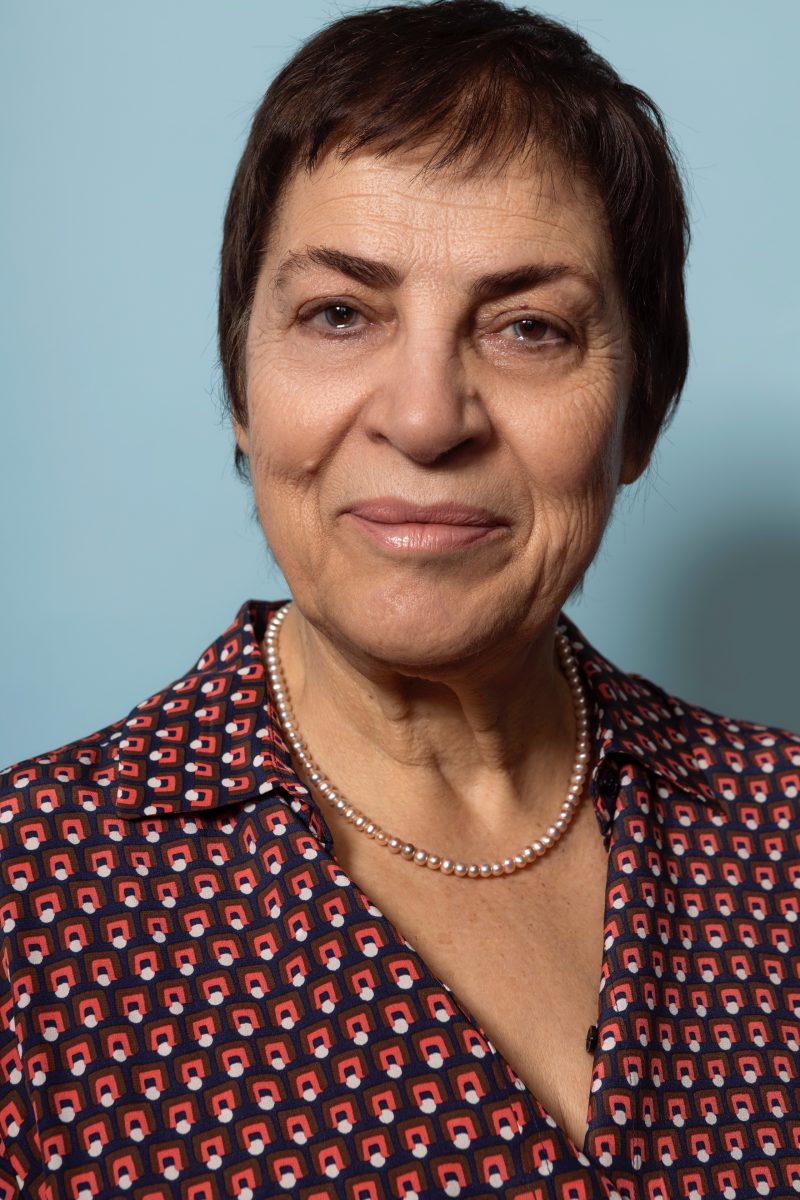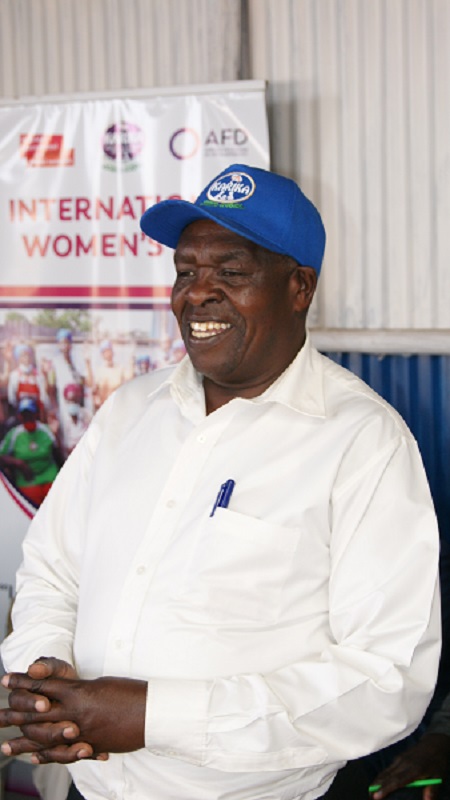The 58th session of the UN Human Rights Council is now underway in Geneva (24 Feb – 4 Apr 2025), where the Council will be discussing what steps are needed to ensure older people are fully protected under international law. We will be attending and closely engaging in the negotiations of a crucial procedural resolution we hope will establish an intergovernmental working group to begin drafting a UN convention on the rights of older persons.
HRC58: Building support for a new UN convention on older persons’ rights
This is a big deal. Right now, older people remain largely invisible in international human rights frameworks. This session gives us a chance to change that, shifting from endless discussions to real action.
Why a UN convention matters
By 2050, the global population of people aged 60 and over will surpass 2 billion. Despite global commitments to dignity and equality, older people continue to face discrimination, exclusion, and a lack of legal protections. Existing international frameworks, such as the Madrid International Plan of Action on Ageing, are important but not legally binding. They do not provide legally binding guarantees protecting from:
- Age discrimination and systemic ageism
- Violence, abuse, and neglect
- Limited access to healthcare and social protections
- Barriers to autonomy and decision-making
A UN convention would close these gaps, ensuring that governments are legally required to uphold the rights of older people – just as they are for other human rights commitments.
HRC58: A turning point for older people’s rights
While progress toward a convention has been slow, HRC58 offers a unique opportunity to build momentum. This session is a crucial moment to shape discussions and strengthen international commitment, paving the way for a resolution
At HRC58, we are calling for a resolution that would:
- Establish an intergovernmental working group to begin drafting a UN convention
- Ensure older people and civil society play an active role in shaping the discussions
- Secure broad international support to drive progress forward
Argentina has taken the lead in proposing this resolution, with backing from Brazil, the Gambia, the Philippines, and Slovenia. If a resolution is introduced and widely supported by UN Member States, it would mark a major step toward ensuring that older people’s rights are recognised and protected at a global level.
Why this matters now
Without a convention, the challenges older people face will continue to grow:
- Ageism and age discrimination will remain unchecked
- Many older people will continue to lack access to essential services and protections
- There will be no international legal framework to hold governments accountable for safeguarding older people’s rights
This is why action at HRC58 is so important. The world cannot afford to delay addressing these gaps any longer.
HelpAge at HRC58
We are in Geneva with GAROP and four dedicated campaigners from Albania, Bangladesh, Kenya, and Malawi, as well as HelpAge International’s Chief Executive, Cherian Mathews. Their mission is to ensure that older people’s perspectives are heard, that governments engage constructively in discussions, and that the case for a resolution gains the support it needs.
Older people are not just advocating for their own rights, they are shaping the future of human rights for generations to come. Their voices matter. Their rights matter.
Now is the time to act.
This blog was written by Tanja Venisnik, Global Rights Policy Adviser at HelpAge International.
Meet our campaigners

Andrew Kavala, MANEPO, Malawi

Andrew Kavala, MANEPO, Malawi
Andrew Kavala is the Country Director for MANEPO, a consortium of Civil Society Organizations working on ageing issues in Malawi. Andrew played a pivotal role in advocating for the ‘Older Persons’ Bill, 2024,’ becoming the first civil society leader to lead a successful advocacy for its approval through the National Assembly. The bill was later assented to by the State President and became law in September 2024.
Andrew was appointed by the State President of Malawi as a Commissioner for the Malawi Human Rights Commission (MHRC), an independent body established under Chapter XI of the Constitution with a mandate to promote and protect human rights, as well as investigate human rights violations. Within the Commission, Andrew chairs the Disability and Elderly Directorate.
Additionally, Andrew serves as an Expert Member of the African Commission Technical Working Group on the Rights of Older Persons and People with Disabilities in Africa. He also represents Malawi at the 4th Permanent General Assembly of the Economic, Social and Cultural Council (ECOSOCC) of the African Union, an advisory body focused on economic and cultural issues. Andrew is also a Director on the Board of Global Ageing Network (GAN).
Born in Malawi, Andrew holds a Bachelor of Arts in Humanities and a Master of Business Administration (MBA), both obtained from the University of Malawi. He is currently pursuing a PhD in Social Science, specializing in ‘Ageing and Development’, at North-West University (NWU) in South Africa.

Ermira Pirdeni, Albanian Society for all Ages, Albania

Ermira Pirdeni, Albanian Society for all Ages, Albania
Ermira, 79, is the Founder and executive director of the Albanian Society for All Ages (ASAG). She has a vast active history of civic engagement and advocacy. She was the founder and board member of the Democratic League of Albanian Women (first independent women’s movement in Albania following the advent of democracy) in 1991 and the Secretary General of the Albanian Women Federation 1995-1999. She champions the protection of the rights of older people to age actively and with dignity, to be equally involved in the social and political life of the country, to continue to work and to contribute society, to pass on wisdom and experience to young people and learn from them, and to be free from any violence or abuse.

Elijah Mwega, KARIKA, Kenya

Elijah Mwega, KARIKA, Kenya
Elijah Mwega is the Founder and CEO of KARIKA Kenya, a community-based organisation advocating for older people’s rights across 21 counties. Through KARIKA, he has mobilized a national network of ageing-focused organisations, amplifying the voices of older people in Kenya.
A dedicated activist, Elijah has worked with government institutions to develop key policies, including the National Policy on Older People and Ageing (2018) and the Kenya National Social Protection Policy (2011). He played a crucial role in advocating for the establishment of a geriatrics division within the Ministry of Health and has led public campaigns against elder abuse, neglect, and disinheritance.
In 2013, he secured government land to build a daycare center for older people, now a model facility visited by international delegations. He is currently developing a rescue center for vulnerable older people.
Elijah is a member of the Kenya Association of Gerontology and Geriatrics (KAGG), the Non-Communicable Diseases Alliance Kenya (NCDAK), and the Steering Committee of the Global Alliance for the Rights of Older People (GAROP). He has contributed to research on ageing and well-being with Kenyatta and Oregon Universities.
Internationally, he has represented Kenya at the 2014 UN Open-ended working group on ageing (OEWGA) and UN-Habitat III (2017), presenting on ageing in urban environments.
Elijah, 68, holds a Diploma in Community Development and has led multiple projects, including those funded by the World Bank, AFD, and HelpAge International, improving access to healthcare and financial support for older people.

Dr. Halida Hanum Akhter, Bangladesh

Dr. Halida Hanum Akhter, Bangladesh
Dr. Halida Hanum Akhter is a distinguished reproductive health epidemiologist with over 30 years of national and international experience in public health, maternal and child health, and family planning. She is a medical graduate and holds an MCPS in OB/GYN, an MPH, and a Dr.PH from Johns Hopkins University.
Dr. Akhter is a faculty member at the Center for Human Nutrition, Department of International Health, Johns Hopkins Bloomberg School of Public Health. She previously served as Chief of Party for the USAID-DFID NGO Health Service Delivery Project and was the Senior Country Representative for Pathfinder International in Bangladesh from 2013 to 2018.
She was the Founding Director of the Bangladesh Institute of Research for Promotion of Essential and Reproductive Health Technologies, where she led groundbreaking clinical trials on advanced contraceptive methods. Dr. Akhter also served as the Director General of the Family Planning Association of Bangladesh and founded the Society for Health Promotion Links, a grassroots initiative training women as community maternity practitioners in rural Bangladesh.
At Management Sciences for Health, Dr. Akhter was the Global Technical Lead for Reproductive Health and Family Planning, directing interventions in 14 countries to reposition family planning and integrate best practices into national health programmes. She has held leadership roles on various global committees, including WHO Geneva, IPPF’s International Medical Advisory Panel, and the Packard Foundation’s Steering Committee on Alternate Business Models.
Recognised for her contributions to global health, she received the Outstanding JHU Alumni Award and serves on the Dean’s Alumni Council at Johns Hopkins. She was awarded the Justus Liebig University’s Developing Country Award in 1995 and was the Laureate of the UN Population Award in 2006.
